Cannabis News
Cannabis and the Current Spiritual Evolution
Published
4 months agoon
By
admin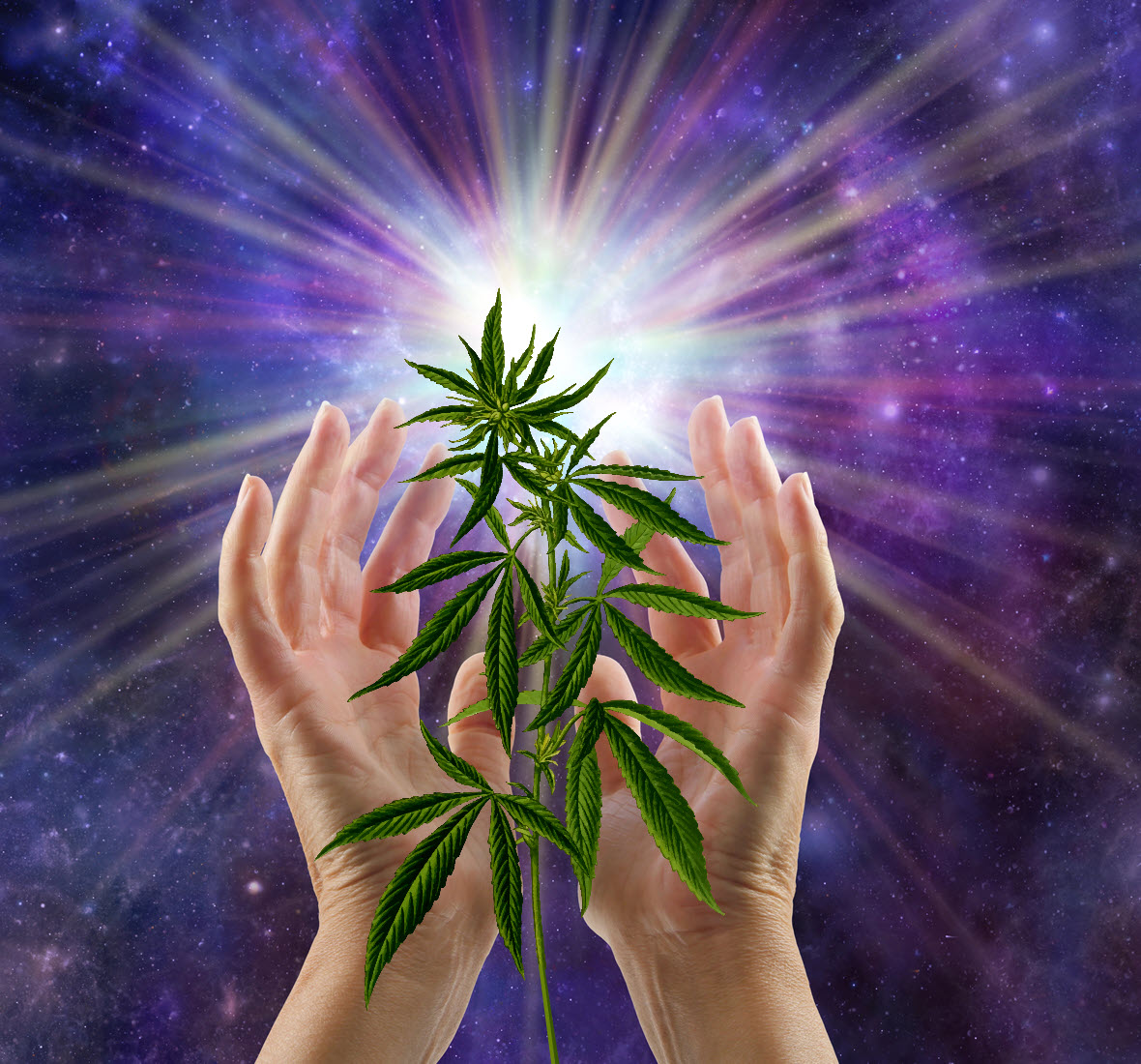
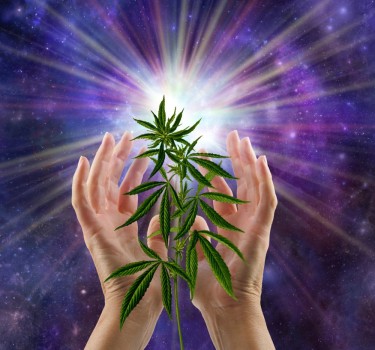
Cannabis and Spiritual Evolution – Good or Bad?
As I sat with a friend, discussing the intricate dance between cannabis use and spiritual development, I found myself reflecting on the words of Alan Watts. When asked about his own cannabis use, Watts famously quipped, “When you get the message, hang up the phone.” This simple yet profound statement has stuck with me, especially as I navigate my own journey of spiritual growth while being a cannabis user.
During our conversation, my friend posited that cannabis could be a detriment to one’s spiritual evolution, particularly if we develop a strong attachment to it. I found myself nodding along, understanding the validity of his perspective. After all, attachment is often viewed as a hindrance to spiritual progress across various philosophical and religious traditions.
Yet, as a cannabis user myself, I couldn’t help but feel that this perspective, while valuable, might not tell the whole story. While I acknowledge the potential pitfalls, I also believe that cannabis, when used mindfully, may have a place within spiritual development.
In this article, we’ll explore the complex relationship between cannabis and spiritual evolution. We’ll examine how this plant can potentially enhance our journey through life, opening doors to new perspectives and insights. But we’ll also look at the flip side – when cannabis use might become detrimental to our growth and how to recognize those moments.
As we embark on this exploration, I invite you to approach this topic with an open mind, regardless of whether you’re a cannabis user or not. Our aim is not to promote or discourage use, but rather to foster a nuanced understanding of how this plant intersects with our spiritual paths. Has cannabis sparked a relgious and spiritual awakening?
To truly understand the complex relationship between cannabis and spiritual growth, we must first consider the perspective that cannabis could potentially hinder our spiritual evolution. My friend, who isn’t opposed to cannabis use but offers a thought-provoking viewpoint, presents a compelling argument worth exploring.
The crux of the matter lies in determining when cannabis use transitions from a tool for exploration to a potential obstacle in our personal growth and spiritual journey. My friend used an intriguing metaphor to illustrate this point: imagine going to the gym and having someone else lift the weights for you. While you’re going through the motions, you’re not actually building your own strength. This analogy resonates deeply when we consider our spiritual practice.
Another apt comparison is that of a crutch. When we’re injured and unable to walk, crutches are essential for mobility, allowing us to continue our daily activities despite temporary disability. However, once we’ve healed, continuing to use crutches can actually impede our progress. The discomfort of using a healing limb stimulates blood circulation, accelerating recovery. Prolonged use of crutches post-healing can lead to dependency, ultimately reducing our mobility and strength in the long run.
This crutch analogy is particularly poignant when applied to cannabis use in spiritual practice. For many, cannabis becomes a crutch to “deal with their problems.” They rely on it as a panacea for emotional and spiritual distress, using it to navigate their inner turmoil. But this reliance may slow down or even halt personal growth. By leaning on the phytochemical relief provided by the plant, we might be avoiding the necessary work of diving deep into our own being and confronting our challenges head-on.
It’s crucial to remember that cannabis isn’t a prerequisite for achieving spiritual enlightenment. We shouldn’t need it to de-stress or access deeper meditative states. In fact, most religious and spiritual paths emphasize inward, endogenous healing as the key to spiritual enlightenment. The answers we seek often come from within, not from external sources.
In this light, cannabis can indeed become a detriment to personal and spiritual development. If you find yourself questioning whether cannabis is helping or holding you back, I strongly encourage you to meditate on this. Listen to the whispers of your soul. While the potential for cannabis to hinder spiritual growth is real, it’s important to note that this may not be true for everyone.
Ultimately, the goal of spiritual practice is to develop our inner resources, to build our spiritual “muscles,” if you will. When we rely too heavily on external aids, we risk neglecting the development of these internal capacities. The danger lies in becoming dependent on cannabis to achieve states of mind or insights that we should ideally be able to access on our own.
However, it’s essential to approach this perspective with nuance. Just as the usefulness of crutches depends on our state of healing, the impact of cannabis on our spiritual journey may vary based on our individual circumstances and the stage of our spiritual development. What might be a helpful tool at one point in our journey could become a hindrance at another.
Now, let’s flip the script and explore another perspective on cannabis and spiritual growth. To truly understand the potential benefits, we need to look at some intriguing historical examples and scientific insights.
Most people aren’t aware that Bill Wilson, the founder of Alcoholics Anonymous, didn’t strictly follow his own protocol to overcome his crippling alcohol addiction. While AA doctrine emphasizes relying on a “higher power” to conquer addiction—a concept rooted in hermetic principles of using the higher to govern the lower—what’s often left out of AA meetings is that Wilson experimented with LSD alongside Aldous Huxley. It was only after this experience that he was able to break free from his addiction.
But why did LSD help Wilson achieve this goal? The answer lies in the way psychedelics affect the brain. When you use LSD, your brain lights up, and neural pathways that aren’t typically connected suddenly form new links. This state of hyper-neuroplasticity presents a unique opportunity to reconfigure neural pathways—which is essentially what addiction is, a neurological loop where the user is stuck.
Moreover, excessive drinking often creates a barrier between the individual and their sense of the divine or Higher Self, effectively cutting off their connection to spiritual realms. Wilson’s use of LSD served to re-ignite this divine spark, allowing him to reconnect with his higher self and ultimately overcome his addiction.
Cannabis, while not as potent as LSD, works in a similar manner. It creates a unique moment of altered perspective. The rush of dopamine and the increase of phytocannabinoids in the system allows for a state of neuroplasticity, helping users step out of their habitual thought patterns and behaviors. This is why cannabis has shown promise in treating conditions like PTSD—it provides enough neuroplasticity to break free from traumatic loops.
Beyond its potential for breaking negative patterns, cannabis can also enhance spiritual awareness and deepen meditative states. For individuals who feel “cut off” from any divine connection or struggle to connect with their higher self, cannabis can act as a conduit to establish this connection. It can facilitate entry into deep meditative states, allowing for profound introspection and spiritual insights.
Many users report that cannabis helps them gain new perspectives on life, enhances their creativity, and fosters a sense of connectedness with the world around them. These experiences can be deeply spiritual, leading to personal growth and a greater understanding of one’s place in the universe.
Furthermore, the cannabinoids in cannabis interact with our body’s endocannabinoid system, which plays a crucial role in maintaining overall health and balance. By supplementing this system, cannabis can potentially help create a more harmonious state of being, which can be conducive to spiritual growth.
It’s important to note that cannabis only becomes problematic when one becomes overly attached to it, turning it into a spiritual crutch. The key is to view and use cannabis as a tool, much like how we might use coffee to wake up in the morning or meditation to center ourselves.
Reflecting on my own experience, I shared with my friend that while I consume cannabis regularly, I don’t feel an unhealthy attachment to it. I see it as a versatile tool in my spiritual and wellness toolkit. I use it to unwind in the evenings, sometimes to enhance meditation, and often as a way to replenish my endocannabinoid system, allowing me to function better overall.
This balanced approach allows me to harness the potential benefits of cannabis for spiritual growth without becoming dependent on it. It’s about using the plant consciously and intentionally, always staying aware of its effects and our relationship with it.
Moreover, for those dealing with chronic pain, anxiety, or other conditions that can hinder spiritual practice, cannabis can provide relief that allows them to engage more fully in their spiritual journey. By alleviating these physical and mental obstacles, cannabis can create space for deeper spiritual exploration.
It’s also worth considering the long history of cannabis use in various spiritual traditions around the world. From ancient Hindu sadhus to Rastafarians, many have incorporated cannabis into their spiritual practices, viewing it as a sacred plant that can facilitate communion with the divine.
While it’s crucial to be mindful of the potential pitfalls of cannabis use, it’s equally important to recognize its potential as a spiritual enhancer. When used consciously and in moderation, cannabis can be a valuable tool for breaking negative patterns, gaining new perspectives, deepening meditation, and facilitating spiritual growth. The key lies in maintaining a balanced relationship with the plant, using it as a tool for exploration and growth rather than a crutch or escape. As with any spiritual practice or tool, the intention behind its use is paramount.
So, what do we do with all of this information? How do we navigate the complex relationship between cannabis and spiritual growth?
My friend’s perspective has indeed influenced my approach. These days, I typically reserve my cannabis use for the end of the day, around 11 PM, similar to having a nightcap—a way to destress and prepare for the next day. However, I still use cannabis and personally don’t struggle with strong attachment. This is largely because I’ve invested years in personal growth work and occasionally use psychedelics, always as a tool rather than an escape.
While I agree that we shouldn’t rely on crutches when we’re healed, I also believe in using the right tool for the job. You wouldn’t try to drive a nail with your bare fists when a hammer is available. Not only is this less efficient, but it’s also likely to cause harm. You might opt for a rock instead of your fists, but it’s still less effective than using a proper tool like a hammer.
This analogy encapsulates the crucial distinction for me: is cannabis a tool or a crutch? In my personal experience, I use it as a tool. That’s why I’ve stopped using it at the beginning of the day, choosing instead to experience life’s stresses in high definition. Yet sometimes, depending on the day’s activities, I’ll roll a joint and ride the waves of euphoria to the shores of gnosis.
However, it’s vital to be a psychedelic cartographer. Don’t rely on substances to reach these states. Instead, when using them, discover the feeling, acknowledge where you are, and then find ways to return there without the aid of drugs. This is, at the very least, my current approach to psychedelics and cannabis—viewing them as tools, not crutches.
Perhaps one day I’ll “get the message and hang up the phone,” as Alan Watts suggested. But for now, I still have several nails to hammer, so I’ll continue to rely on my trusty tool belt to get the job done.
Nonetheless, this is a deeply personal decision. One must listen to the whispers of the heart to understand whether cannabis is an enhancer or a detractor in their spiritual journey. The key is to be spiritually honest with yourself and to accept whichever answer you receive.
Remember, what works for one person may not work for another. Your spiritual path is your own, and only you can truly know what aids or hinders your growth. If you choose to use cannabis as part of your spiritual practice, do so mindfully and intentionally. Regularly check in with yourself to ensure it’s still serving your highest good.
Ultimately, the goal of any spiritual practice is to foster growth, self-awareness, and connection with something greater than ourselves. Whether cannabis has a place in that journey is a decision only you can make. Trust your intuition, stay open to new insights, and above all, be kind to yourself as you navigate this complex terrain.
CANNABIS AND SPITUALITY, READ ON…
You may like
-


Fun Ways To Celebrate Halloween With Marijuana
-
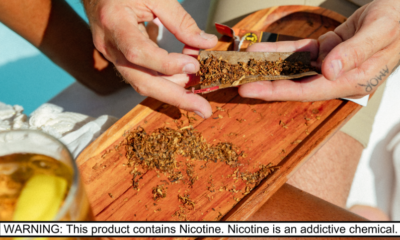

Find special offers on Al Capone Premium Natural Leaf Wraps at a store near you
-


If The FDA Approves It, 5 Million Depressed Americans Could Benefit From a New Psychedelic Therapy
-


Maybe You Shouldn’t Watch Horror Movies While High
-


Quirky Information About The Goldfish Snack Name Change
-


The Most Popular Costume In Each State
Cannabis News
If The FDA Approves It, 5 Million Depressed Americans Could Benefit From a New Psychedelic Therapy
Published
6 hours agoon
October 25, 2024By
admin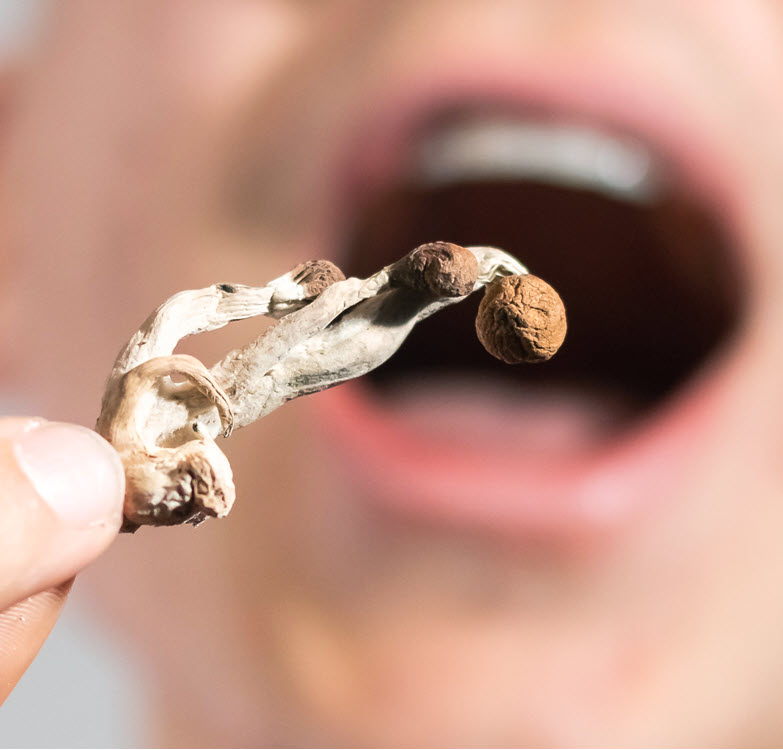
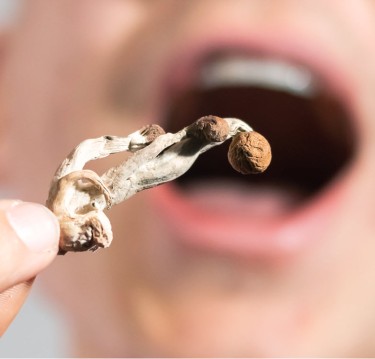
With millions of people around the world suffering from depression, it’s a seriously worrying condition that affects countless families and societies as a whole.
It’s also still so highly stigmatized, hindering people from seeking help, a proper diagnosis, and treatment. And for those who do get treated, recovery may be futile. That’s because depression is so multifaceted – and it is such a complex condition. There are several social, familial, environmental, and biological factors at play at any given time. In addition, factors such as genetics, trauma, stress, and substance use also play a role.
When it comes to treating depression, responses are highly individual too. A medication and dosage that works well for some, may not work as well for others. Additionally, individuals with co-existing conditions including PTSD and anxiety, or people with specific genetic differences and brain chemistry, will respond differently to pharmaceutical medications. Even those who do respond, may find it takes a long time to work – and antidepression medications are notorious for their harmful side effects.
Enter: Psychedelic Mushrooms For Depression
Over the last few years, psychedelic drugs have become increasingly popular for their ability to effectively manage treatment-resistant mental health disorders including depression. Thanks to a growing acceptance of the therapeutic potential of psychedelics, individuals suffering from depression now have more hope than ever with a safe, natural choice.
And while there are many popular psychedelics to choose from, it’s none other than the psilocybin magic mushrooms which are the most famous of all. It’s also the most well-researched out of all other psychedelics whne it comes to depression, and there is a solid body of research proving its efficacy for treatment-resistant depression.
During a recent study from Emory University, UC Berkeley, and the University of Wisconsin-Madison, investigators sought out to better understand the demand for psilocybin therapy focusing on depression in the United States. The researchers analyzed data on the prevalence of depression, which were taken from national polls. From this data, they determined that roughly 5 million Americans would meet the criteria for psilocybin therapy if it were ever to be approved.
“Our findings suggest that if the FDA gives the green light, psilocybin-assisted therapy has the potential to help millions of American who suffer from depression,” explained Syed Fayzan Rab, the study’s lead author and an Emory MD candidate in a press release. “This underscores the importance of understanding the practical realities of rolling out this novel treatment on a large scale,” he said. The figures are also based on the FDA’s inclusion criteria taking into consideration factors such as regional variation, insurance coverage, and variability.
“While our analysis is a crucial first step, we’ve only scratched the surface in understanding the true public health impact psilocybin therapy may have,” explained Charles Raison, one of the study’s collaborators. Raison is also a lead researcher for one of the biggest clinical trials studying psilocybin therapy for depression. “Ultimately, the realizable potential of this treatment rests in the hands of regulatory bodies, policymakers, insurers, and the healthcare community at large,” he added.
“It’s our hope that these findings spur productive discussions and proactive preparations to optimize the benefit to patients while minimizing unintended consequences,” he said.
Why Psilocybin-Assisted Therapy Is Promising
There are many ways one can medicate with psilocybin. Some cosmonauts who already have had previous experience with recreational or spiritual use of psychedelics may feel confident enough to engage in psilocybin therapy through standard dosing or microdosing; there are several well-established protocols that one can utilize to do so safely without supervision of a medical professional.
However, for individuals who suffer from severe and treatment-resistant depression, psilocybin-assisted therapy may be the better route. It involves the administration of psychedelics (in this case, psilocybin mushrooms) under the supervision of a medical professional. Basically, it’s like replacing conventional antidepressant drugs with psilocybin mushrooms; in either case you’d be monitored by your doctor and you can participate in psychotherapy sessions with them while taking the drug.
Psilocybin Even More Effective Than Antidepressants?
Not only is there an increasingly solid body of research proving the efficacy of magic mushrooms, but now the studies also say that they’re safer and more effective than antidepressants. And when you combine it with the fact that it has little to no side effects, who wouldn’t want to take psilocybin magic mushrooms for depression?
A recent study demonstrated just this.
Researchers at the Centre for Psychedelic Research at Imperial College in London found that taking magic mushrooms were more successful at treating depression compared to the widely prescribed SSRI antidepressants. For the study, they focused on escitalopram, an SSRI antidepressant, and psilocybin.
“This is important because improving connectedness and having greater meaning in life can significantly enhance a person’s quality of life and long-term mental health,” explained David Erritzoe, the study’s co-first author and a clinical director at the Imperial College in London.
“The study suggests that psilocybin therapy might be a more holistic treatment option for depression, addressing both the symptoms of depression and overall well-being. This could make a substantial difference in the overall happiness and daily activities of those suffering from depression, providing a more joined-up approach to mental health treatment,” Erritzoe added.
The study’s authors also reported that the patients who were in psilocybin therapy reported better outcomes compared to those who were being treated with escitalopram.
Conclusion
There’s no doubt that psilocybin therapy already helps so many people with depression and other mental health conditions – imagine if the FDA approved psilocybin-assisted therapy? We hope this is the kind of medical and regulatory breakthrough we can look forward to in the near future – stay tuned!
PSYCHEDELICS FOR DEPRESSION BEGINS, READ BELOW…
Cannabis News
Oregon Cracks Down on THC Inflation and Testing Labs
Published
1 day agoon
October 24, 2024By
admin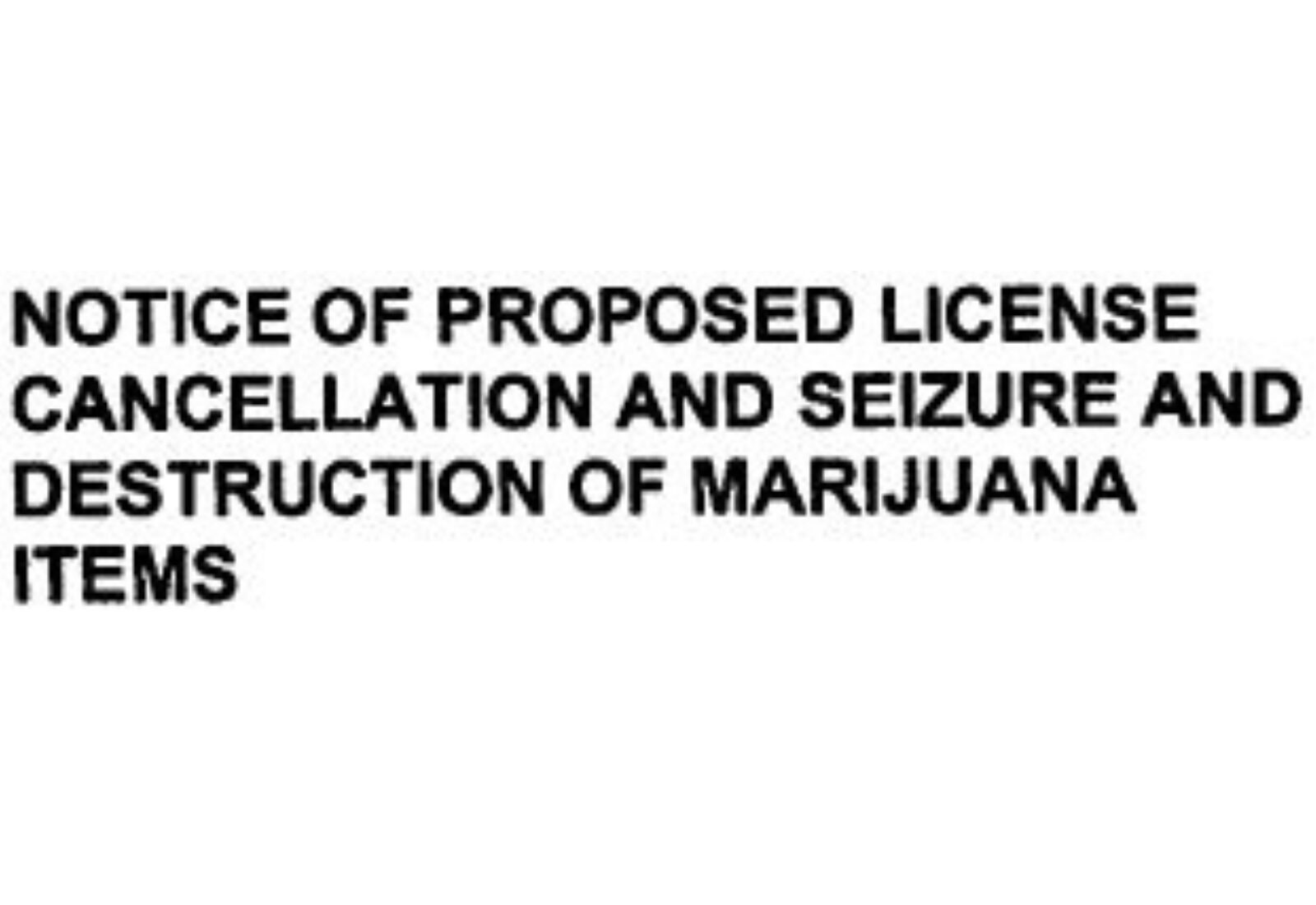
On September 25th, the Oregon Liquor and Cannabis Commission (OLCC) sent notices to seven licensed testing laboratories, proposing license cancellation in some cases and suspension or fines in others. The notices center on alleged THC inflation, and extend back to instances identified in 2023. We only have eleven labs in Oregon accredited to do this mandatory work, so OLCC chasing seven of them is a big deal.
This story broke yesterday afternoon in the Portland Business Journal (“Journal”). See: Oregon cannabis labs face shutdown in testing crackdown. I’m guessing that link is paywalled for most of our readers, so I’m glad to have this platform to share some thoughts below.
The proposed suspension and cancellation notices
An obvious question here is why OLCC has proposed to expel some of these licensees, but only suspend or fine others. We’re talking about Category I violations across the board, after all, and the default sanction for any Category I violation is license revocation.
Here, though, the Commission seems to be looking at conduct in two distinct camps: a) conduct that simply could be negligence (and specifically, lazy sampling); and b) attempts to rig results by adulterating products. All seven labs got dinged on “a”, while three also got dinged on “b.”
In the “a” notices, charges include: i) failures to ensure an entire batch of marijuana was available for sampling, and ii) insufficient sampling increments. In the “b” notices, OLCC alleges that “the Licensee’s employees, agents or representatives intentionally added a cannabinoid concentrate, kief [], to the samples taken for testing.” Which is not great.
A long time coming
Controversy around cannabis testing is an old story in Oregon. Prior to OLCC regulation, we had “medical marijuana” from 1998 to 2014 with no testing requirements whatsoever. In 2014, after dispensary licensing commenced, the Oregon Health Authority (OHA) issued poorly-written testing rules that no one really followed. In those days lab shopping was common, dozens of harmful pesticides were allowed, and OHA didn’t even have the authority to regulate producers or labs, anyway.
In 2015, the Oregonian published a landmark investigative piece called “A Tainted High” exposing all of this and more. In 2016, the OLCC program launched, with more testing rules and more enforcement authority, at which point a serious testing bottleneck ensued. Once things cleared up, focus shifted to microbiological and heavy metal contaminants, alongside inflated THC numbers. In 2019, the Secretary of State recommended shelf audits at dispensaries, which eventually did occur.
The latest noise around testing was the aspergillus litigation, where the Cannabis Industry Alliance of Oregon (CIAO) won a temporary stay of enforcement on testing for that mold, and OHA abandoned rules on the topic. In 2023, we also got House Bill 2931, which creates a state-run cannabis reference lab. In June of last year, I wrote:
Why did everyone, including industry, feel a state cannabis reference lab was needed? First, for as long as the OLCC program has existed (and even before that, in the OHA medical program), agencies have fielded complaints from cannabis licensees around testing. Those complaints include allegations of labs spiking potency levels on test samples, and of labs falsifying failed test results. From there, you have the related concepts of “lab shopping” by licensees and “pay to play” testing with labs.
State agencies have argued that to properly regulate licensed labs, an independent mechanism to verify test results is needed. Audits have similarly recommended this. The newly created reference lab will provide: a) a neutral, third-party source for testing and re-testing; b) quality assurance review for licensed labs; and c) a mechanism to audit complaints from licensees about faulty lab testing. This is a positive development.
So, everyone has been looking at this for a while. And now we’re full circle on this inflated THC thing– a problem that is not unique to Oregon.
What happens next?
All of the OLCC labs that received the September 25th notices have until tomorrow, October 25th, to request a hearing before an administrative law judge. This is a critical deadline; hopefully all of them have done so. The rules also require an answer to be filed with any hearing request, but traditionally OLCC affords licensees up to two weeks prior to any prehearing conference to make the submission. (This is not advice.)
You’re here for the big question, though, which is: does OLCC plan to go to the mat on this, with massive fines, suspensions and license cancellations? I don’t think so, necessarily, but it’s obviously a case-by-case thing. Much will depend on the underlying testimony and reports; whether a lab owner knew what their employees were allegedly doing; how the licensees respond; etc. But as I told the Journal: “They can’t have no labs. OLCC may push for labs to come to them and say we’re sorry, it will never happen again, and show internal (standard operating procedures) and maybe creative solutions” in order to safeguard testing.
Is this just a problem for labs?
No. I told the Journal that “it’s not fair just to blame the labs.” And it’s not. With kiefing, in particular, the lab employees would have received the concentrate from customers in most or all cases. This behavior is ultimately driven by market pressures: for whatever stupid reason, the strongest weed tends to attract the most interest and highest prices. (Thankfully, alcohol doesn’t work this way.)
But I digress. Before signing off, I’d like to highlight one final quote I gave the Journal. It’s this: “They’re going after the labs, then the employees involved, then all the producers and wholesalers who are implicated. You saw the first wave, but you’re going to see more.”
Anyone else receiving a violation notice from OLCC will have the same opportunity to respond, and hopefully settle, as the labs. All of this will take some time to play out.
___________
If, in the coming weeks and months, you are one of the unfortunate licensees or permittees on the receiving end of an OLCC charging document, I recommend you start your reading here. Then, give us a call. We can help.
Cannabis News
Maternal Cannabis Use Does Not Lead to Higher Rates of ADHD or Behavior Disorders in Children Says New Massive Medical Study
Published
2 days agoon
October 23, 2024By
admin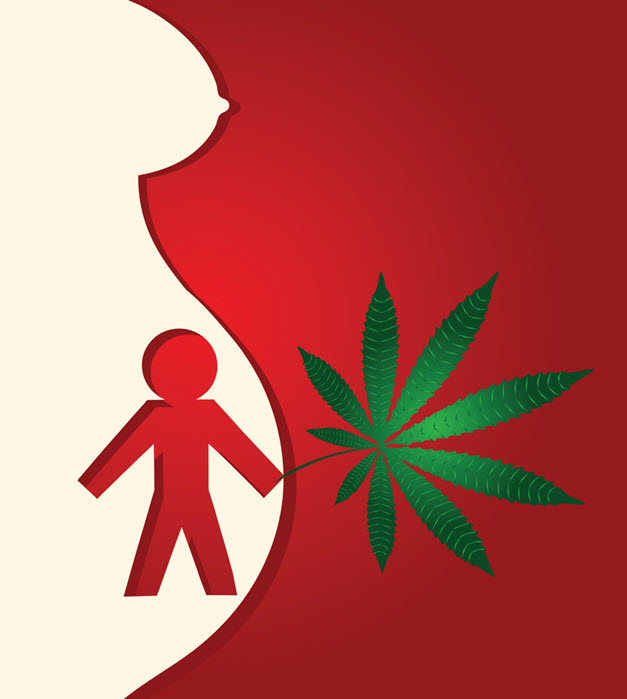
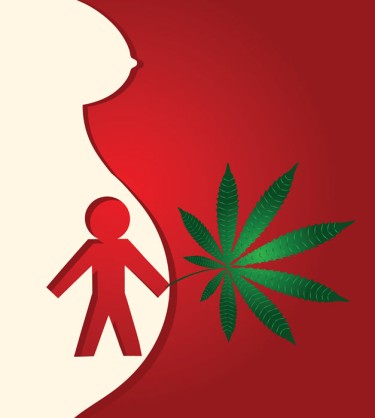
Let’s get one thing straight right off the bat: it’s generally best for expecting mothers to avoid consuming any substances during pregnancy. That’s just common sense. But as someone who’s watched his wife go through the miraculous and downright brutal process of pregnancy twice, I can tell you firsthand – growing a human ain’t no walk in the park.
Pregnancy is hardcore, period. You’re bloated, in pain, and your organs are literally rearranging themselves to make room for a tiny squatter. And don’t even get me started on morning sickness. For some women, it’s more like all-day, soul-crushing nausea that makes you wonder why our species hasn’t gone extinct yet.
It’s no wonder that for centuries, cannabis has been viewed as a natural remedy for these pregnancy woes. Our ancestors knew a thing or two about plant medicine, after all. But in recent decades, we’ve been bombarded with warnings that maternal cannabis use increases the risk of behavior disorders and ADHD in children. Scary stuff for any parent-to-be, right?
Well, hold onto your bongs, folks, because a new study is challenging that narrative. This isn’t some small-scale research either – we’re talking about a massive study involving over 100,000 participants. And guess what? They found no link between maternal cannabis use and an increased risk of ADHD or behavior disorders in offspring.
Now, before you start planning a pregnancy hotbox party, let’s take a deeper look at this study and what it really means. We’ll also compare the risk profiles of cannabis to some of the currently accepted medications for morning sickness. Because let’s face it, those pharma-approved pills aren’t exactly risk-free either.
So strap in, dear readers. We’re about to embark on a journey through the complex world of pregnancy, cannabis, and the ever-evolving landscape of medical research. It’s time to separate fact from fiction and give expectant mothers the information they need to make informed decisions about their health and the health of their future little ones.
First off, let’s talk scope. This isn’t some rinky-dink study done in a college dorm room (though those can be fun too). We’re looking at a behemoth of a research project that makes most studies look like a kiddie pool next to the Pacific Ocean.
The researchers, a team of brainiacs from Kaiser Permanente Northern California, the University of California, and The Permanente Medical Group, analyzed data from a whopping 141,570 children born to 117,130 pregnant individuals. That’s more people than the entire population of Topeka, Kansas, folks. The study covered births from 2011 to 2018, giving us a solid chunk of time to work with.
Now, here’s where it gets interesting. Of these 117,130 pregnant individuals, 4.6% screened positive for cannabis use during early pregnancy. That’s about 5,388 cannabis-using moms-to-be, if my back-of-the-rolling-paper math is correct.
So, what did they find? Hold onto your hats, because this might blow your mind: maternal prenatal cannabis use was not associated with an increased risk of offspring developing ADHD or disruptive behavior disorders (DBD). In fact, the adjusted hazard ratio for ADHD was 0.84, which is science-speak for “Nope, no link here.”
But wait, it gets even more intriguing. When it came to DBD, they actually found an inverse association. The adjusted hazard ratio was 0.83, suggesting that children of cannabis-using mothers were slightly less likely to develop disruptive behavior disorders. Now, before you start recommending pot for pregnant ladies, remember that correlation doesn’t equal causation. But it’s certainly food for thought.
Let’s hear it straight from the horse’s mouth. The study concludes, and I quote, “Maternal prenatal cannabis use was not associated with an increased risk of offspring ADHD or DBD.” That’s about as clear as it gets, folks.
Now, why is this important? Well, for starters, it challenges the long-held belief that cannabis use during pregnancy is a one-way ticket to behavioral issues for the kid. This study, with its massive sample size and rigorous methodology, provides some serious scientific firepower to counter those claims.
But here’s the kicker: the researchers aren’t saying “Go ahead and blaze it, preggo!” They’re quick to point out that while these findings are significant, they don’t suggest that marijuana use during pregnancy is risk-free. There’s still a lot we don’t know about the long-term effects of prenatal cannabis exposure.
What this study does do is open the door for more nuanced, evidence-based discussions about cannabis use during pregnancy. It gives us a solid foundation to question some of the fear-mongering that’s been going on and to push for more research in this area.
In the world of science, a study like this is like dropping a boulder in a pond. The ripples are going to be felt for a long time, potentially influencing everything from public health policies to individual decisions made by expectant mothers.
Now, I’m not here to bash Big Pharma (well, maybe a little), but let’s take a look at some of the common medications prescribed for morning sickness. It’s like a chemical alphabet soup, and the side effects? Well, they might just make you want to puke.
First up, we’ve got Doxylamine. Sounds fancy, right? It’s an antihistamine that’s often combined with vitamin B6 to combat nausea. But here’s the kicker: it can cause drowsiness, dizziness, and even movement disorders. Because that’s exactly what a pregnant woman needs – to feel like she’s stumbling around in a fog.
Then there’s Metoclopramide, a “promotility agent” that sounds like something you’d use to clean your toilet. It stimulates stomach and bowel movement, which is great if you want to spend even more time in the bathroom. Side effects? Oh, just little things like depression, anxiety, and tardive dyskinesia – a fun little condition that causes uncontrollable movements. Lovely.
For the overachievers in morning sickness, we’ve got Ondansetron. It’s often prescribed for hyperemesis gravidarum, which is fancy doctor-speak for “holy crap, I can’t stop puking.” But watch out for those pesky side effects like headaches, constipation, and oh yeah, potential heart rhythm problems.
Now, let’s talk about Mirtazapine. It’s an antidepressant that they pull out when nothing else works. Because apparently, the solution to not being able to keep food down is to take a drug that can cause increased appetite and weight gain. Makes perfect sense, right?
And for the grand finale, we’ve got Corticosteroids. These bad boys are reserved for severe cases, probably because their potential side effects read like a medical textbook’s index. We’re talking increased risk of gestational diabetes, preeclampsia, and low birth weight. But hey, at least you’re not nauseous anymore!
Now, here’s where things get interesting. The LD-50 (that’s the dose that’s lethal for 50% of test subjects) for these drugs ranges from about 500mg/kg to 1000mg/kg in rats. For cannabis? It’s estimated to be around 1260mg/kg when orally ingested. That’s higher than any of these pharmaceutical options.
So, let me get this straight. We’re okay with giving pregnant women drugs that can cause everything from movement disorders to depression to potential heart problems, but a plant that’s been used for centuries to combat nausea is off-limits? A plant that, I might add, has a higher LD-50 than these lab-created concoctions?
Look, I’m not saying cannabis is risk-free during pregnancy. We need more research, and every woman should make an informed decision with her doctor. But when I see the list of side effects for these “approved” medications, I can’t help but wonder: are we really making decisions based on health and safety, or are we stuck in a prohibition-era mindset?
It’s time we start asking some hard questions about our approach to morning sickness treatment. Why are we so quick to reach for the prescription pad when Mother Nature might have a gentler solution? Why is it okay to give pregnant women drugs with laundry lists of side effects, but not one that grows out of the ground?
I don’t have all the answers, folks. But I do know this: when it comes to pregnancy and cannabis, we need to cut through the fear-mongering and look at the facts. Because at the end of the day, what matters most is the health and well-being of mom and baby. And sometimes, the best medicine might just be the one that’s been growing in our backyards all along.
Source:
https://themarijuanaherald.com/2024/10/study-of-over-100000-finds-
maternal-marijuana-use-not-associated-with-increased-risk-of-adhd-or-behavior-disorders-in-children/
https://pubmed.ncbi.nlm.nih.gov/39400201/
PREGNANT AND CANNABIS, READ ON..

Fun Ways To Celebrate Halloween With Marijuana

Find special offers on Al Capone Premium Natural Leaf Wraps at a store near you

If The FDA Approves It, 5 Million Depressed Americans Could Benefit From a New Psychedelic Therapy

Maybe You Shouldn’t Watch Horror Movies While High

Quirky Information About The Goldfish Snack Name Change

The Most Popular Costume In Each State

Oregon Cracks Down on THC Inflation and Testing Labs

Make Autumn Awesome With The Best Oreo Cookie Hacks

Can An Air Purifier Get Rid Of The Marijuana Smell

Arizona court declines to void or reassign contested marijuana social equity permit

Distressed Cannabis Business Takeaways – Canna Law Blog™

United States: Alex Malyshev And Melinda Fellner Discuss The Intersection Of Tax And Cannabis In New Video Series – Part VI: Licensing (Video)

What you Need to Know

Drug Testing for Marijuana – The Joint Blog

NCIA Write About Their Equity Scholarship Program

It has been a wild news week – here’s how CBD and weed can help you relax

Cannabis, alcohol firm SNDL loses CA$372.4 million in 2022

A new April 20 cannabis contest includes a $40,000 purse

Your Go-To Source for Cannabis Logos and Designs

UArizona launches online cannabis compliance online course
Trending
-

 Cannabis News2 years ago
Cannabis News2 years agoDistressed Cannabis Business Takeaways – Canna Law Blog™
-

 One-Hit Wonders2 years ago
One-Hit Wonders2 years agoUnited States: Alex Malyshev And Melinda Fellner Discuss The Intersection Of Tax And Cannabis In New Video Series – Part VI: Licensing (Video)
-

 Cannabis 1012 years ago
Cannabis 1012 years agoWhat you Need to Know
-

 drug testing10 months ago
drug testing10 months agoDrug Testing for Marijuana – The Joint Blog
-

 Education2 years ago
Education2 years agoNCIA Write About Their Equity Scholarship Program
-

 Cannabis2 years ago
Cannabis2 years agoIt has been a wild news week – here’s how CBD and weed can help you relax
-

 Marijuana Business Daily2 years ago
Marijuana Business Daily2 years agoCannabis, alcohol firm SNDL loses CA$372.4 million in 2022
-

 California2 years ago
California2 years agoA new April 20 cannabis contest includes a $40,000 purse






